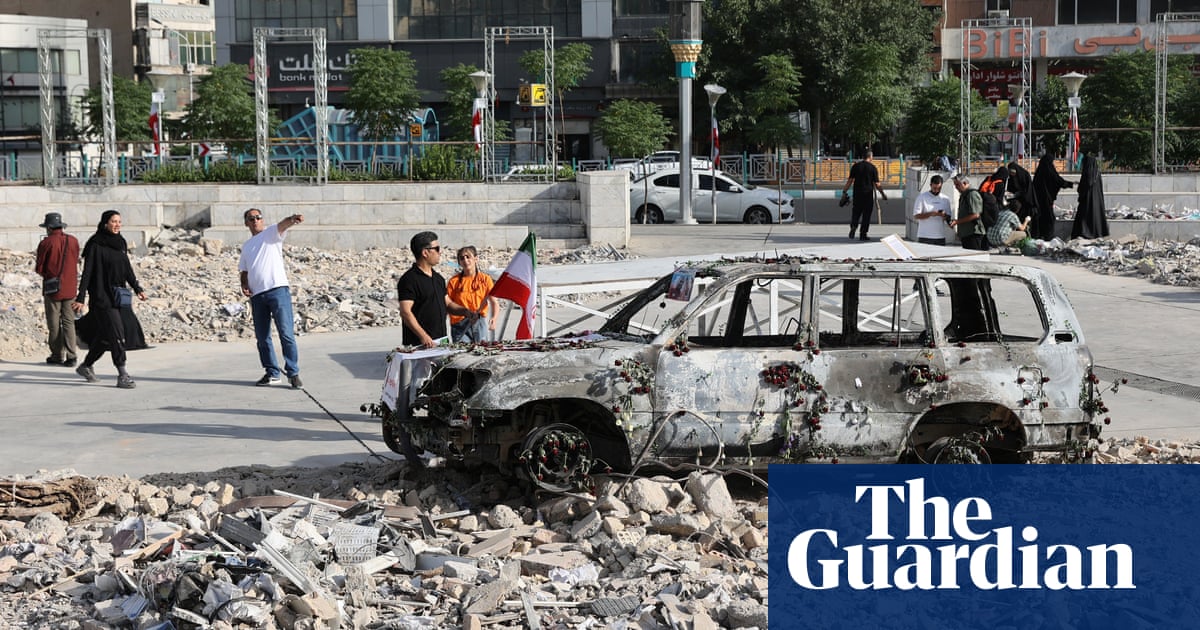The internet inIranwas down for a full three days [at the end of last week], and there was no way to communicate with others. This outage has added to people’s fear and anxiety, as we no longer knew which cities had been bombed or which areas were under evacuation orders.
If the internet outage continues, many jobs will be lost.
The government has arrested [scores of] people on charges of espionage and collaborating withIsrael, [people fear that the regime] is planning to execute them. Just today on the national television news, arrests and executions were announced.It’s frightening – because even if, hypothetically, these individuals were spies, a fair trial should take weeks to prove such a charge.
The government has deployed police patrols and checkpoints at entrances of [various] cities and main streets, [according to] friends and relatives of mine who live in different cities. I see them every day in Kerman. They are even randomly confiscating mobile phones in the city, searching cars both when entering and leaving the city, and also on the main streets during normal traffic. It hasn’t happened to me yet.
It seems that the United States has also joined the war. People are worried about the risk of radioactive contamination [as nuclear facilities are being bombed].
We are very afraid that Iran might respond to the US attack, and that the situation could get worse. We are also worried about a possible strike on the Bushehr [nuclear power plant] facility, [that] this could lead to another Chernobyl.
A large number of people have returned to Tehran, although the bombing there hasn’t stopped. People were forced to come back to the city. Many of my friends also returned because they have to work, otherwise they won’t have any income. And many people don’t have a place to stay outside of Tehran for many weeks.
There are gasoline shortages, and even in safer cities such as Kerman, many businesses have partially shut down. Everything is semi-closed. Online businesses, tourism-related jobs, and travel agencies are shut down.
The postal service is closed, which has led to the closure of online shops as well. University exams and the national university entrance exam have been cancelled. However, government offices and banks remain open.
Many private companies have not paid salaries, and it’s unclear when they will. I myself haven’t received my monthly salary either. My company announced that due to the wartime situation, they are currently unable to process salary payments. The same goes for my husband, as production in his factory has completely halted.
I have some savings, but if the war continues and salaries remain unpaid, my savings will run out in at most two or three weeks. This is the case for most people. Due to high inflation, it’s very difficult for us in Iran to save much money.
In smaller townslike Kerman, Yazd, or Rafsanjan, food supplies are still available, although prices are rising sharply.
However, in Tehran and other major cities, there is now a significant shortage of bread, fruit, eggs, and other essential food items.
[I don’t know anybody who has tried leaving the country] – not yet. People are still in shock and believe that this war will end soon. It’s probably a psychological defence mechanism. Many believe the war will end once most major military sites have been bombed.
One of my friends, who is undergoing chemotherapy for breast cancer, has run into serious trouble.
The medications for her chemotherapy used to be sent from Tehran every day, but now it is no longer possible to deliver them.
With each passing day, situations like these are getting worse.
